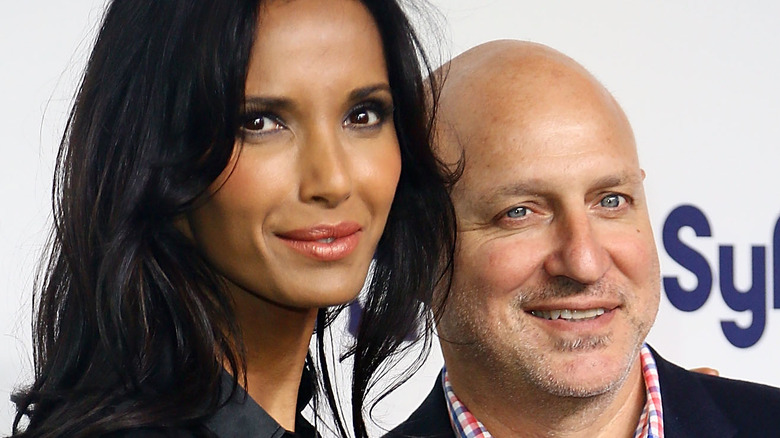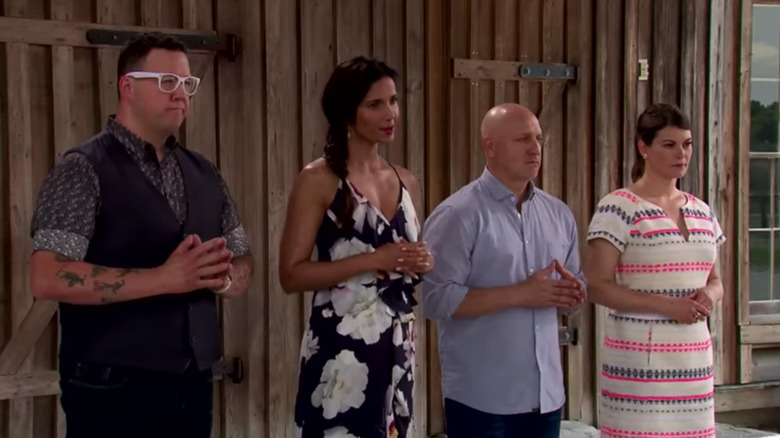The Most Controversial Episode In Top Chef History
The idea of using a slave plantation as the setting for a cooking competition seems problematic, so it should have come as no surprise to the "Top Chef" team that, when they decided to premiere its Charleston season at the Boone Hall Plantation in 2016, the internet was aghast; especially considering, as Uproxx reported, the plantation challenge pitted a Black contestant against a white contestant.
During an interview with Esquire, Tom Colicchio attempted to excuse himself from the controversy. When asked if slavery was an inevitable subject for the cooking competition to address, Colicchio explained that "most people are forgetting that we deal with issues every season." He then pointed out that he and his team "married 40 gay couples" during their California season, which took place before same-sex marriages were recognized nationwide. He also said the Boone Plantation had been home to the Charleston Oyster Festival for 34 years and noted that they were hosting an oyster-roasting competition.
While one may buy into Colicchio's reasoning, the way the episode handled the location's history appeared questionable. As Eater shared, Padma Lakshmi avoided the term "slaves" and instead said, "Those who worked and toiled here." She then turned to Gerald Sombright, a Black contestant, and asked, "Gerald, what's going through your mind right now?"
Top Chef could've handled things differently
According to Reality Blurred, the idea of hosting an elimination game at Boone Plantation was the first problem. And while there were other issues with the episode, including Lakshmi's introduction, all the other hang-ups could be traced back to the series' initial decision to film a reality television program at that location. On Twitter, as the outlet shared, one person asked, "You don't film lighthearted episodes in the kitchens of Auschwitz, do you?"
In Uproxx's verdict, they could see both sides of the issue. On one hand, the outlet noted, it may not be reasonable to deny the show the right to film anywhere with a connection to slavery, like the White House. But on the other hand, they continued, the episode could have been handled better. Certainly the show could have acknowledged the background of the location differently while also explaining the connection it had to the food challenge at hand.

